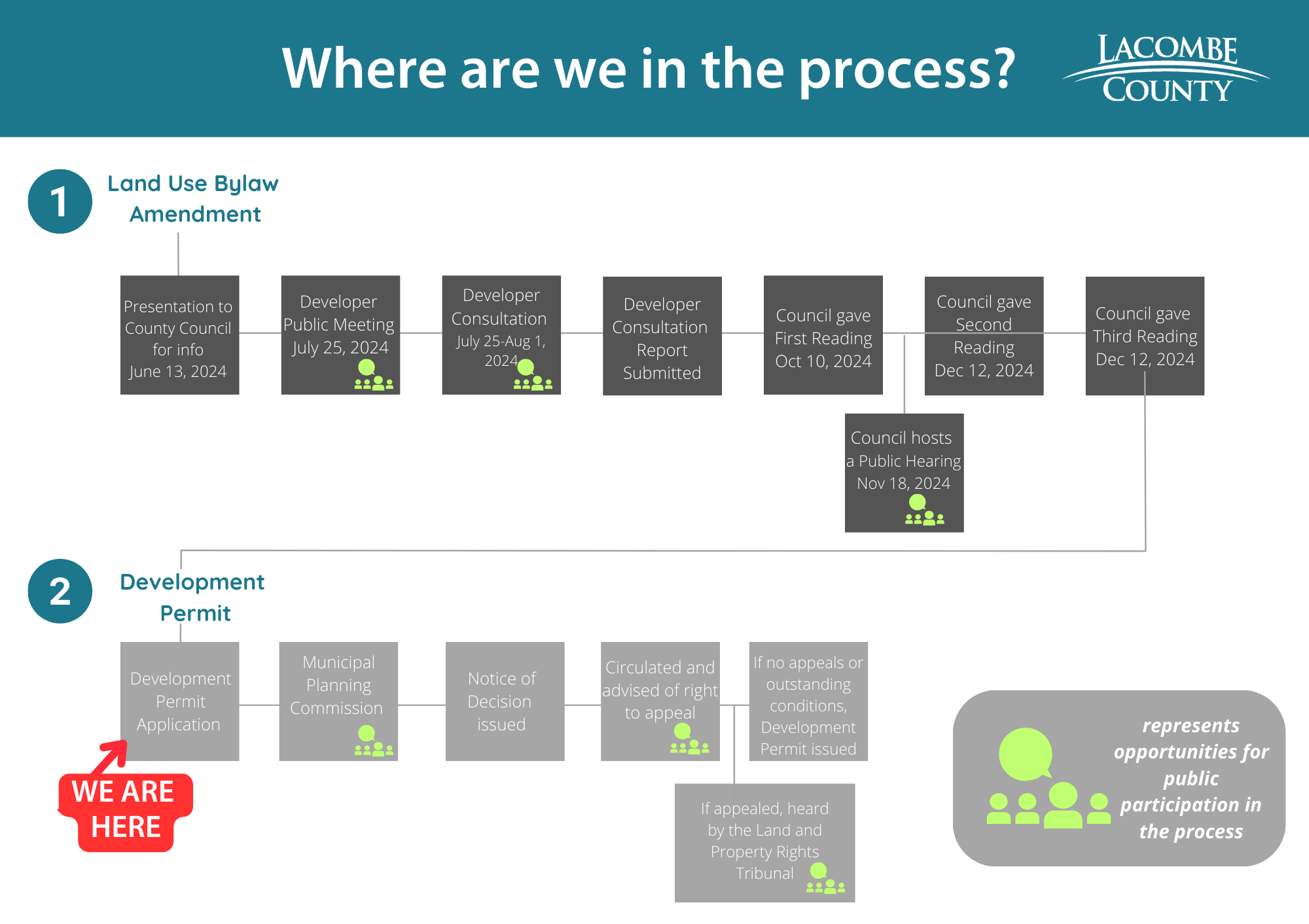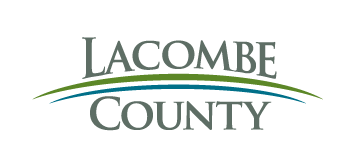The developer was first required to make an initial presentation to County Council for information. The initial presentation to County Council was held on June 13, 2024. The purpose of this initial presentation was to provide Council with a preliminary view of the development prior to the developer holding any public meetings.
The developer is then required to complete community consultation. A community information meeting must be held by the developer and advertised appropriately. The developer community meeting was held on July 25, 2024, at the Tees Community Hall. The circulation radius for mail notices was 1.0 mile from the property. The meeting notice was posted in a local newspaper, the County News, on the County website, and on the County’s social media.
The developer is accepting comments from the public until August 1, 2024. After that, a community consultation report would be required, prior to Council considering bylaw readings for the Land Use Bylaw amendment.
During the bylaw readings for the Land Use Bylaw amendment, Council would be required to host a Public Hearing prior to considering second reading of the bylaw changes. The Public Hearing presents the proposed bylaw and gives members of the public an opportunity to speak to Council about it and provide input before adoption. Anyone wishing to comment on the proposed bylaw will have an opportunity to do so at the Public Hearing, or by providing written comments.
If the Land Use Bylaw amendment is successful and passes all three required bylaw readings, the developer could apply for a development permit for the use as a “recovery centre”. Members of the public are able to speak at the Municipal Planning Commission meeting, in support or in opposition to the proposed development. As a discretionary use, any Municipal Planning Commission decision would be circulated by mail to lands within 1.0-mile of the property and advised of their right to appeal.
A Municipal Planning Commission decision can be appealed by people who may be affected by a decision of the Development Authority. The appeal would be heard by the Land and Property Rights Tribunal (LPRT). The LPRT is a quasi-judicial board that hears and makes decisions on appeals related to a variety of matters, including development. The LPRT makes final decisions after conducting a fair hearing, and cannot be overturned unless an error occured in some aspect of law or jurisdiction.




